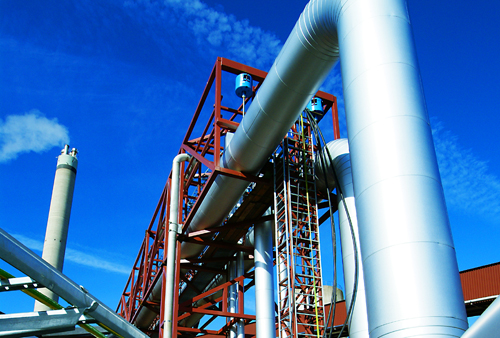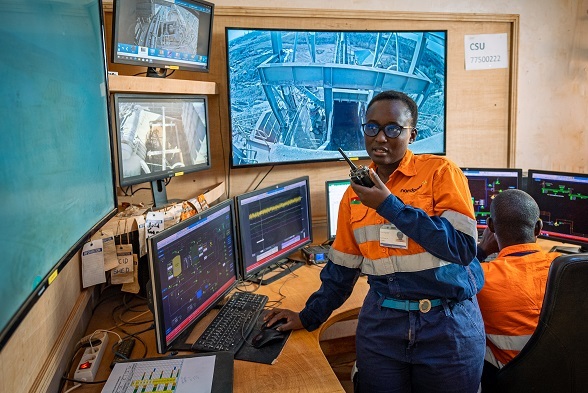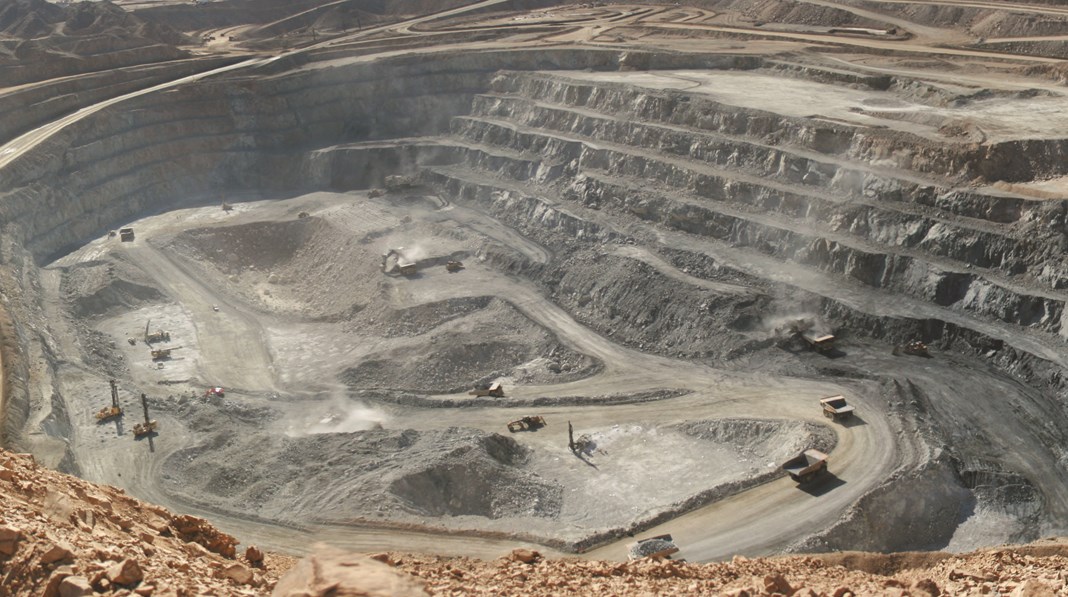
Petrojam is a limited company jointly owned by PDVCaribe, a subsidiary of Petróleos de Venezuela (PDVSA) which owns 40 percent of its shares, and the Petroleum Company of Jamaica (PCJ). Petrojam was established in 1982 when the Government of Jamaica purchased the Kingston Refinery from Esso, which had built and operated it since 1964. Put simply, Petrojam's job is to supply refined products to the people and businesses of Jamaica.
As Jamaica’s primary energy company Petrojam now has the responsibility for managing its key asset, the refinery, and manufacturing cost-efficient, high quality products to ensure an uninterrupted supply of energy to keep the nation on the move and working – it is a vital part of the island's economy. Among the services that rely on Petrojam are the supply of aviation fuel for the airlines that fly in and out of Jamaica, bunkering for the ships that use its ports, supplying power generation plants and providing a reliable supply of affordable lead free petrol and diesel to the filling stations.
The Jamaica government benefits from agreements with Venezuela and Mexico under which feedstock – crude oil – is supplied to the refinery. Negotiated in 1983 the current conditions of the San Jose Accord ensure the supply of 29,000 bpd of crude. The Petrojam refinery, located on a 76 acre site on Kingston Harbour (the seventh largest natural harbour in the world), has a rated capacity of 38,000 barrels per day (bpd) and an average daily output of up to 35,000 barrels. Increasing its capacity has clearly been needed for a long time. In fact the refinery upgrade project evolved out of a memorandum of understanding signed in August 2005 between PJ Patterson the Jamaican prime minister at the time and President Hugo Chavez, with an expected 2010 completion date.
However despite the fact that the front end engineering design (FEED) for the $1.3 billion Refinery Upgrade Project (RUP) was completed in 2009, the project was stalled by changing political priorities on the part of the Venezuelan government. But now the RUP has been brought back to the front of the queue. Last year, in a filing to the US Securities and Exchange Commission (SEC), the Venezuelan government said that PDVSA has brought forward the start date of the Jamaica project to 2014, a year earlier than previously expected.
The plan is to increase production at the Kingston refinery from 35,000 to 50,000 bpd, and the urgency of the project was underlined by Jamaica’s Energy Minister Phillip Paulwell in May when he claimed the Petrojam plant could face the risk of being shut down if the necessary works were not undertaken. The cue to its moving back to the top of the agenda is Paulwell's discussion with Venezuelan counterparts at this year's PetroCaribe summit in June, following which he announced the agreement with Venezuela that the Petrojam oil refinery expansion and upgrading project would again become a priority.
The refinery was originally built, using a simple hydroskimming model, using modern optimisation principles in its design, and in general that has proved fit for purpose over the years. However the equipment and process streams do need upgrading, and this investment is also a vital part of the project. The refinery is a very competent facility, staffed by qualified personnel and with some excellent ancillary facilities. For example its laboratory, the only fully equipped petroleum laboratory in Jamaica, monitors product quality on a 24-hour basis. Staffed by specialist technicians who test, analyse and certify products against internationally recognised standards, the lab is at the heart of the operation. It also offers commercial testing to third party clients for octane levels, water and chemical analysis, and particulate levels in fluids. It is also able to monitor dust, lead and CO levels in the atmosphere.
Another area of best practice is to be seen in Petrojam's logistics arrangements. Within the plant a small but effective team is responsible for the economic evaluation of incoming feedstock. The team co-ordinates crude oil imports, marine transportation of crude oil and finished products for export as well as to domestic customers. Delivery by sea is cheaper and safer than road transport. Refined products for the Montego Bay Terminal and supplies to large volume customers such as the light and power plants and bauxite companies are delivered by sea using Petrojam owned and chartered vessels, operating from the company's berth in Kingston Harbour.
The next task is to update the FEED report to base it on more up-to-date figures than those available in 2008. Once that is done the real work can progress, and, as Mr Paulwell says: "It will enable us to produce those things that we use in Jamaica — LPG, gasoline, and low sulphur diesel — so that we will be almost self-sufficient, and be able to export some of it," he said, pointing out that the by-product, petcoke, will enable the generation of 100 megawatts of cheap electricity. Upgrading of the refinery will ensure its viability in the long term and allow for the installation of treatment facilities to meet new environmental specifications for diesel oil and gasoline.
One of the many outstanding programmes of personal development that Petrojam pursues is its youth development programme. In particular its Summer Employment Programme, which each year selects 100 or more secondary and tertiary level students to undertake paid work and training during their long vacation. The objective is to give these students a taste of what it is like to do a real job in an industrial enterprise, and how they can gain satisfaction from adding real value to Petrojam by working on active projects.
Some of them subsequently join the company explains Production Manager Telroy Morgan, a key motivator for the students, but that is not by any means the sole object of the programme. “A number of students come back after the Summer Employment Programme and grow into key roles with Petrojam: the others get invaluable experience here and go on to contribute to the growth of the nation as a whole.”
Telroy Morgan should know: he himself came into Petrojam via this route and now occupies an important management position. He is not alone, and the enthusiasm of the student cohort for the scheme is palpable: they are exposed to a variety of different disciplines from highly technical roles and engineering to admin and management experience that will stand them in good stead in any business.
The target date for competing the refinery upgrade project has now been set for January 2016, giving Jamaica a world class facility capable not only of producing the quantity the island needs but of supplying it with new and improved products such as the ultra low sulphur diesel (ULSD) fuel that was launched in Jamaica on June 25. “If our upgrade is done in short order, Jamaica would be the only Caribbean country using and selling ULSD fuel, apart from the French countries,” said Phillip Paulwell – this is important as only countries that can supply USDL are able to import diesel vehicles equipped with advanced emission control.
Written by John O’Hanlon, research by David Brogan
DOWNLOAD
 Petrojam-AM-O&G-Sep13-Bro-s.pdf
Petrojam-AM-O&G-Sep13-Bro-s.pdf













